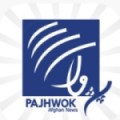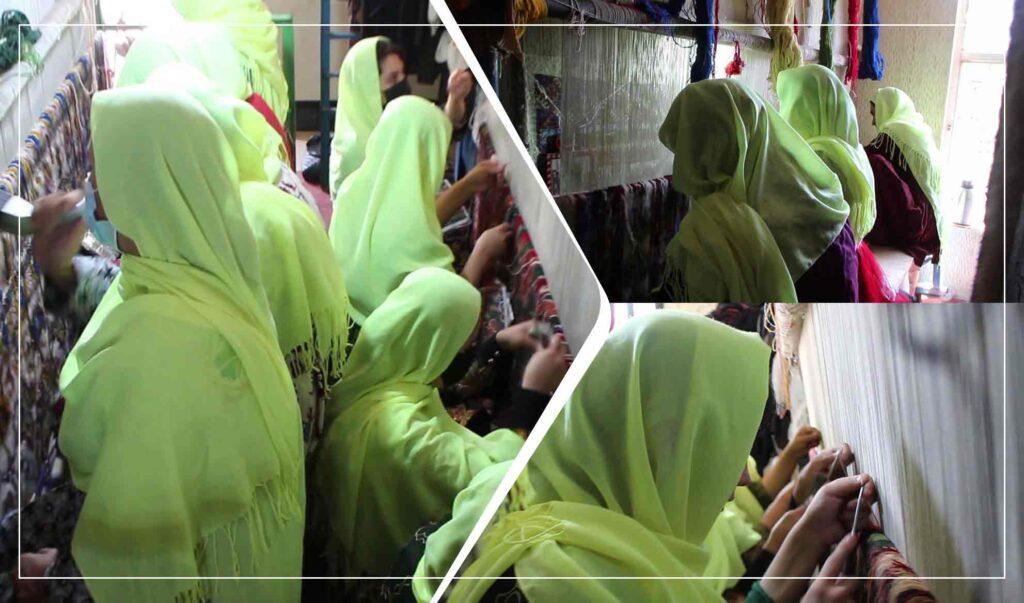
Carpet Weaving Brings Hope To Herat's Women, Girls
HERAT CITY (Pajhwok): A woman in western Herat province has established a carpet-weaving workshop at her own expense, creating opportunities for professional training and income generation for more than 50 other women and girls.
She says this initiative not only helps provide livelihoods for families but also fosters self-confidence and hope among women, helping them overcome the psychological pressure and depression caused by restrictions. It stands as a clear example of women's resilience and capability under the most difficult circumstances.
Yagana, the owner and founder of the carpet-weaving workshop, says that after restrictions were imposed on women's education and their employment outside the home in some offices, many women suffered from depression and psychological distress.
According to her, by establishing this workshop she has created a space where women and girls who are their families' breadwinners can regain confidence and earn an income.
She added that if supported by the government or aid organizations, her initiative could expand and create further opportunities for women and girls to learn and work in this profession.
In this workshop, women from various parts of Herat have come together to learn the ancient art of carpet weaving and, through their own hands, set the wheel of life in motion.
Following the re-establishment of the Islamic Emirate of Afghanistan (IEA), girls' education above the sixth grade was suspended. Later, both public and private universities were instructed to halt the education of female students until further notice.
IEA officials have repeatedly stated that once suitable conditions are provided, girls will be allowed to continue their education.
Hadiya, one of the girls working in the workshop who studied up to the ninth grade, says:“After girls' education was suspended, I was depressed for a while, but now, through carpet weaving, I feel peace of mind. With the income from this work, I can help cover part of my family's expenses.”
She added that there are 11 members in her family, and the income she earns from the workshop helps meet some of their household needs.
Aziza, another carpet weaver, says that carpets produced in this workshop come in various types, sizes, and prices - some valued at up to 30,000 afghanis.
“Although carpet weaving is difficult and time-consuming,” she says,“it is the only way for me to earn an income and achieve financial independence.”
Meanwhile, the Chamber of Women's Commerce and Industry in western Afghanistan says that following the suspension of girls' education and the forced return of Afghan migrants from Iran, many women have turned to handicrafts, including carpet weaving.
Behnaz Saljuqi, head of the chamber in Herat, says that more than 40 carpet-weaving workshops are currently active in the province - all managed by women - and her office is working to provide greater support to them.
On the other hand, Hamidullah Ghiyasi, head of the Art and Culture Department of the Herat Information and Culture Directorate, describes carpet weaving as a symbol of Afghanistan's civilization and culture.
He emphasized that the department has organized various exhibitions to preserve and promote this industry, helping to create markets and support for the carpet sector.
According to Ghiyasi, a carpet is not only an economic product but also part of Afghanistan's cultural identity - reflecting the history and artistry of this land.
Although educational and employment restrictions have cast a shadow over the lives of thousands of Afghan women and girls, such initiatives offer them renewed hope, financial independence, and self-confidence.
The carpet-weaving workshops in Herat are a clear example of the strength and perseverance of women who continue striving to build a better future even under the harshest conditions.
As the current academic year nears its end, a number of girls speaking to Pajhwok Afghan News emphasized that they regard observing the Islamic hijab as a religious duty and called on the IEA to bring them the good news of reopening schools above the sixth grade and universities in the coming academic year.
sa/ma

Legal Disclaimer:
MENAFN provides the
information “as is” without warranty of any kind. We do not accept
any responsibility or liability for the accuracy, content, images,
videos, licenses, completeness, legality, or reliability of the information
contained in this article. If you have any complaints or copyright
issues related to this article, kindly contact the provider above.


















Comments
No comment